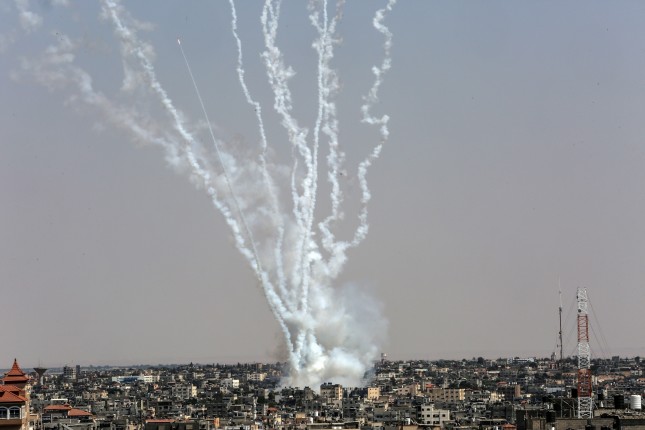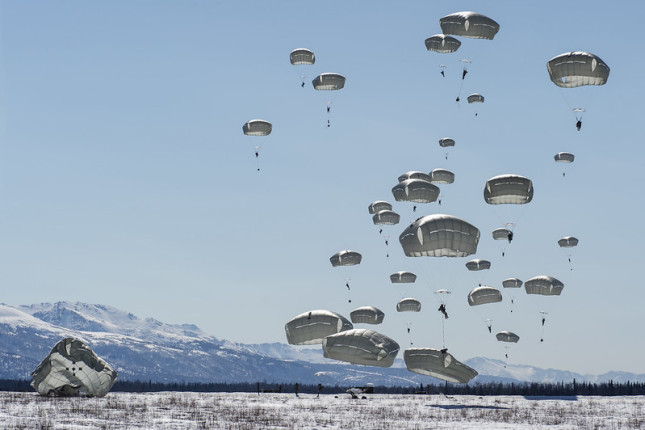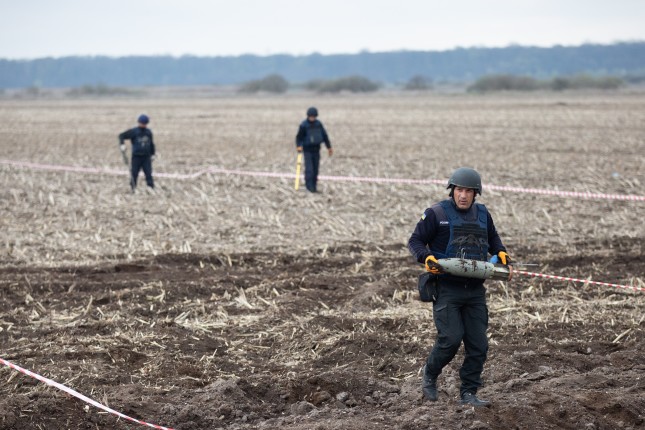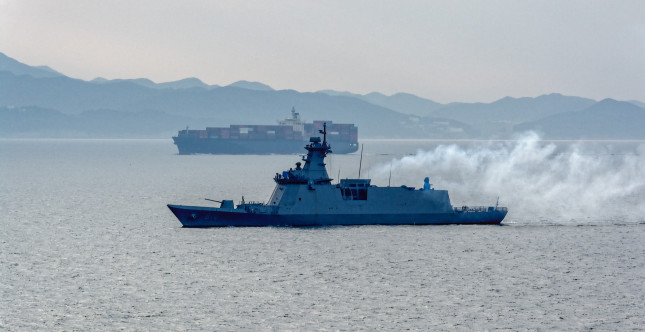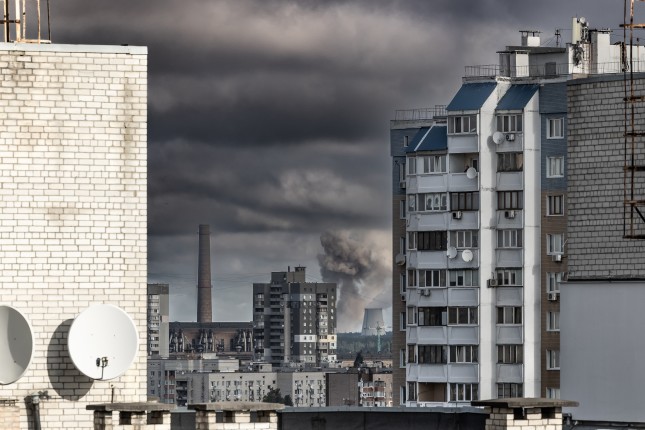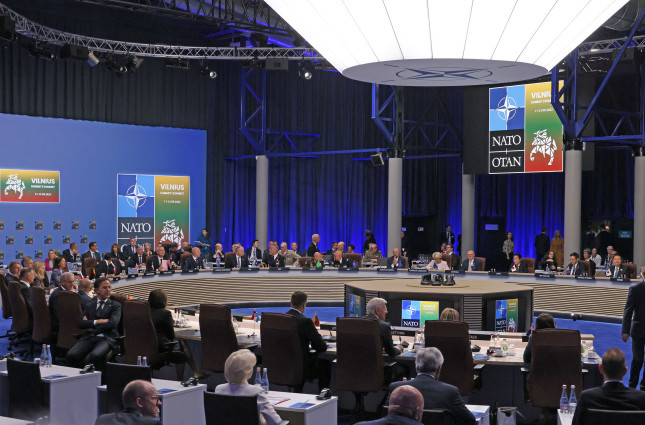-
Ecological Threat Report 2023: Same Hotspots, More Risk
›
Future projections of social disturbance due to climate change and ecological pressures provide little optimism for peace in conflict-affected areas over the coming decades. Yet, can we identify current hotspots and future areas of conflict risk? The fourth Ecological Threat Report (ETR), produced by the Institute for Economics & Peace, attempts to do so by taking on the monumental task of evaluating the relationship between ecological threats and peace.
The new report documents a world of growing ecological threats and declining social resilience in the states and territories most vulnerable to a changing climate. And by assessing ecological threats, societal resilience, and levels of peacefulness at the state, territorial, subnational, and city levels, the report also finds a strong correlation between ecological threats and levels of peacefulness.
-
Relief, Recovery, and Peace: Iris Ferguson on COP28’s New Theme
› In a new mini-series previewing the upcoming UN Climate Summit (COP28)’s new focus on relief, recovery, & peace, ECSP Program Director Lauren Risi spoke with Iris Ferguson, the US Department of Defense’s Deputy Assistant Secretary of Defense for Arctic and Global Resilience.
In a new mini-series previewing the upcoming UN Climate Summit (COP28)’s new focus on relief, recovery, & peace, ECSP Program Director Lauren Risi spoke with Iris Ferguson, the US Department of Defense’s Deputy Assistant Secretary of Defense for Arctic and Global Resilience.Deputy Assistant Secretary Ferguson spoke about why climate security has become a crucial element in DOD planning, as well as why the department will have a highly visible presence at COP28. She also shared the story of her own path to leadership at the Pentagon – as well as why her position includes both global resilience and the Arctic.
-
A Reminder from Israel and Gaza on the Importance and Limitations of Environmental Peacebuilding
›
I flew into Tel Aviv last Friday afternoon, primed for a week of meetings with Israeli and Palestinian environmentalists and officials. By sounding out these men and women in Jerusalem, the West Bank, and other parts of the region, I hoped to expand on past explorations of their transboundary cooperation, widely recognized as a model for environmental peacebuilding. Through an articulation of the successes that they––and their Jordanian peers–have had in bolstering water access, renewable energy, and environmental protection across their shared natural landscape, I was looking forward to telling a positive environmental conflict story—particularly one in a place that is often bereft of good news.
-
Shifting the Climate Security Narrative: How the Department of Defense Can Lead
›
In 2021, US Defense Secretary Lloyd J. Austin III referred to climate change as an “existential threat”—a term traditionally reserved for nuclear weapons. Yet two years and several strategic plans later, tangible progress to mitigate and prepare for this threat remains elusive, especially on the international scale where the greatest impacts could be realized.
-
Ukraine’s Environment Is a Victim of Russian Geopolitics. (Again.)
›
Senior Western officials have received “sobering” reports on the counteroffensive in Ukraine. As both sides continue to rain artillery shells and missiles across the country, Ukrainian forces have struggled to make progress on the front lines in both the south and the east.
Meanwhile, a different but related struggle is occurring across the country. Ukraine’s environment is being poisoned by the by-products of this war; polluting the land, water, and air, and exposing humans, plants, and animals to high levels of toxins.
-
El Niño and Militarized Fisheries Disputes in the East and South China Seas
›
Earlier this summer, the Armed Forces of the Philippines spotted dozens of Chinese fishing vessels in—or very near to—the Philippines’ exclusive economic zone. This influx occurred just weeks after the US National Oceanic and Atmospheric Administration announced, “El Niño is here.”
-
Q&A: Dr. Jeff Colgan on the Energy Security Impacts of Russia’s War in Ukraine
›
Dr. Jeff Colgan is Director of the Climate Solutions Lab at the Watson Institute for Public and International Affairs at Brown University, and a keen observer of the interplay between energy and security. His new white paper, “Letting Europe’s Energy Crisis Go to Waste: The Ukraine War’s Massive Fossil Fuel Costs Fail to Accelerate Renewables,” co-authored by Alexander S. Gard-Murray and Miriam Hinthorn, offers a new window into how an event with the broad potential to reshape energy policy to more sustainable ends has failed to meet the moment. Colgan spoke to us about the institute’s new research and the lessons learned about conflict’s influence on the energy transition more than a year into the Ukraine conflict.
-
The Climate Security Nexus: A Transatlantic Conversation With NATO
›July 21, 2023 // By Claire Doyle
From individual health risks to geopolitical tensions, climate impacts are relevant to every facet of peace and security. Focus on these links has sharpened in recent years, as governments and international security organizations like NATO increasingly recognize that climate responses must be part of promoting peace and security.
Showing posts from category military.


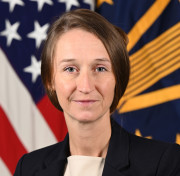 In a new mini-series previewing the upcoming UN Climate Summit (COP28)’s new focus on relief, recovery, & peace, ECSP Program Director Lauren Risi spoke with Iris Ferguson, the US Department of Defense’s Deputy Assistant Secretary of Defense for Arctic and Global Resilience.
In a new mini-series previewing the upcoming UN Climate Summit (COP28)’s new focus on relief, recovery, & peace, ECSP Program Director Lauren Risi spoke with Iris Ferguson, the US Department of Defense’s Deputy Assistant Secretary of Defense for Arctic and Global Resilience.